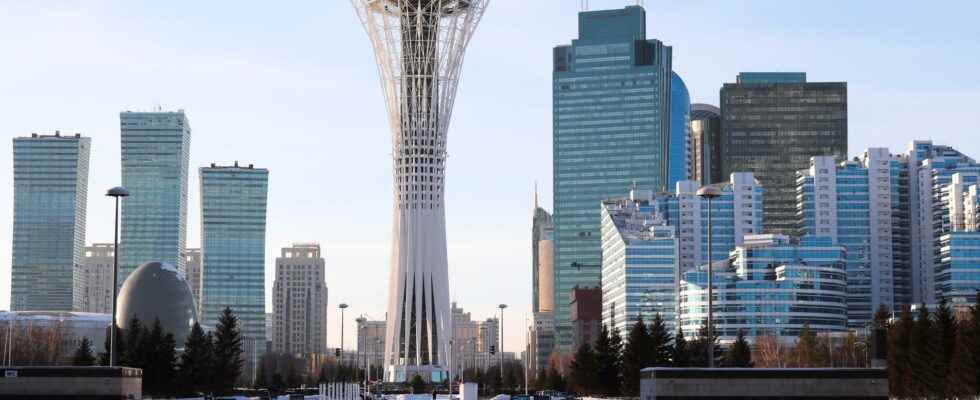Published: Less than 20 min ago
1 of 3 Photo: Bolatbek Otarbayev/AP/TT
Kazakhstan is carrying out extensive political changes and takes the opportunity to change the name of the capital.
Astana, which was renamed Nur-Sultan in March 2019, will be called Astana again.
The country thus turns its back on the former totalitarian president.
President Kasym-Zjomart Toajev on Saturday signed a law that establishes that the president can only serve for seven years and cannot be re-elected for a new term, reports AFP.
The message was published on the president’s website, and it means a fundamental change in the Central Asian country whose rule previously oscillated between authoritarian and totalitarian.
Kazakhstan chose to rename the administrative capital to Nur-Sultan in honor of the outgoing president whose name was Nursultan with the surname Nazarbayev.
Deeply questioned
The former president was the ruler of the Soviet Republic of Kazakhstan from 1990, but politically survived the collapse of the Soviet Union and then ruled the country as president between 2001 and 2019.
Even the country’s leading university and international airport were renamed after Nursultan. But both his personal legacy and political legacy are deeply contested.
In January this year, shortly before Russia invaded Ukraine, democratic protests were crushed in the country. Data claim that 225 people were killed in the unrest. In addition, it was stated that Moscow sent aid to Kazakhstan to suppress the opposition.
The ex-president disappeared
International observers wondered where former President Nursultan was. Although he resigned, he was then considered to have a decisive role in the country’s politics. Some even said that he ran the country behind the scenes, and that his handpicked replacement was just a puppet.
During the unrest, however, the silence from Nazarbayev was almost total. There were rumors that he was hiding near Lake Geneva in Switzerland, others said he had fled to Dubai.
But no one knew what his next move might be.
Now many traces of him, such as portraits and statues, have been sabotaged, painted over or covered with mud despite the risk of reprisals from the secret police.
Saturday’s announcement from President Kassym-Jomart Tokajev that the capital is changing its name and that the constitution is changing indicates a profound change.
Support from influential people
The president appears to be receiving support from influential and wealthy groups in the country, and he is responding by quietly circumcising former leader Nursultan Nazarbayev and his family.
– Tokaev is a sensitive guy. He knows how important the outside world’s image is of Kazakhstan. He acts softly and carefully. He won’t scatter bullets with a machine gun. If he’s going to pick someone off, he’ll do it with the help of a sniper, a diplomat with insight into Kazakhstan’s political situation told the British Guardian in January this year.
Then came the Russian invasion, and former Soviet republics often lay low to follow developments.
But Saturday’s announcement that the capital Nur-Sultan is named Astana and that the president’s power is time-limited may mean that the country wants to break with its totalitarian past and the strong ties to Moscow.
Facts
Kazakhstan
The former Soviet Republic of Kazakhstan proclaimed an independent state in October 1991. The country has a large Russian population and Russia remains the country’s most important ally.
The Central Asian country is rich in natural resources and oil exports account for approximately 70 percent of export earnings.
The country has a population of 18.7 million inhabitants. The area covers 2.7 million square kilometers, which is the size of Argentina.
The country’s first president, Nursultan Nazarbayev, ran an authoritarian regime for 29 years with limited space for political opposition and the media.
When he resigned in 2019, the post was taken over by his ally Kasym-Zjomart Tokajev. Nazarbayev continues to have great influence in other power roles in the background.
Sources: National Encyclopedia, AFP
Read more
